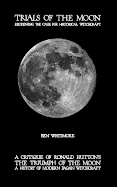Francois' findings were summarized in a review of his book by Joseph Fontenrose, published in vol. 55, no.1 of the journal Classical Philology (Jan., 1960), from which the following is excerpted:
Also see this previous blog entry where there is an especially relevant passage from Plato's Timaeus that offers a clear example of not only the plural and the singular of theos being used interchangeably, but even of the phrase "Gods and Goddesses" being explicitly used as well:"Gilbert Francois [has] devoted a fairly big book to a thorough and painstaking study of every passage of Greek literature from Homer to Plato in which the singulars (ho) theos and (ho) daimon are used without obvious reference to an individual deity; and along with these singulars he studies every occurence of the substantives to theion and to daimonion.
"Francois shows that in most passages where the unspecific theos and daimon occur the singular is equivalent to (hoi) theoi and (hoi) daimones, when these plurals mean all Gods or all supernatural powers together. It is used exactly as "man" is used in English as a collective singular to mean "makind" or "(all) men." Theos, therefore, often means "godkind" as simply another term for all the Gods in one, divinity in general. Taking one by one every Greek author who lived and wrote before 350 BC, he shows by quotation of parallel passages as often as possible from a single work of the author concerned, that again and again (ho) theos and (hoi) theoi are used to express identical thoughts, and that no distinction can be made between them. Often singular and plural alternate within a single passage or argument, both obviously indicating one and the same divine power, the totality of the Gods."
[Classical Philology, Vol. 55, No. 1, p. 55]
Pagan Cosmology: not quite random thoughts on Platonism, polytheism, monism, and so forth
And in this post are discussed (somewhat bluntly) the current crop of "Pagan Monotheism" peddlers (descendants of a long and prestigious line of Christian apologists going back to Eusebius & Co.), headed up by Stephen Mitchell:
Lies, Damned Lies, and Pagan Monotheism
Last, but not least, in this post there is a moderately detailed presentation of primary source material from a number of late-antique Pagans often wrongly identified as "Pagan Monotheists":
Hic sunt dracones
Full citation for the review of Francois' book quoted above:
Joseph Fontenrose
Reviewed work(s): Le Polythéisme et l'emploi au singulier des mots θεός daimwn dans la littérature grecque d'Homère à Platon by Gilbert François
Classical Philology
Vol. 55, No. 1 (Jan., 1960), pp. 55-58
(review consists of 4 pages)
Published by: The University of Chicago Press
Stable URL: http://www.jstor.org/stable/265449



